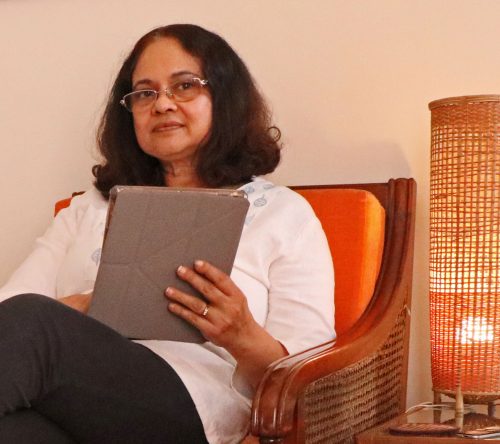
About N.J. Kulkarni:
I started my writing career with the newspaper Deccan Herald, Bangalore, India, and later worked for major national newspapers like The Times of India, Sunday Express and The Telegraph. I also worked full-time for the Economic Times and Business Today magazine and as a stringer for A&M magazine and the Kolkata newspaper, The Telegraph. I have also written for The International Indian, a Dubai based magazine.
I worked as a journalist for more than twenty years. I was a fairly prolific writer, and you can get a list of my work if you go to my website. I wrote on a wide variety of topics ranging from Health and Lifestyle to Crime, Education and Business. I also wrote short stories.
I wrote a very successful blog called “A Wide Angle View of India” for several years, with thousands of page views per day. I stopped writing on it some years ago, but have now decided to concentrate on building up my personal website.
The Educational Department of H. Aschehoug & Co-publishing house in Oslo, bought a story of mine titled A Real Lady, to publish in a textbook and related digital components called Global Visions for use in the foreign language subject. (International English in Upper Secondary schools in Norway.)
My novel titled “The Hawa Mahal Murders” was launched on the 20th of September 2019 at PILF (Pune International Literary Festival) by Javed Akhtar, the famous lyricist. It was a contest winner at the PILF.
What inspires you to write?
I have been writing since I was a child. I was something of an introvert and reading and writing were my favourite past times. I used to keep a diary and a diary is like a friend. This is how my writing habit was cultivated.
Tell us about your writing process.
I re-write a lot, a lot! I am never satisfied with what I write. However, I cannot outline and then write. I write a rough first draft and then make the necessary changes. As I go along I keep taking notes as I research the setting and also make character sketches. This happens during the first draft and also subsequently. I use Scrivener for my writing so it is easy to organise this information.
For Fiction Writers: Do you listen (or talk to) to your characters?
I see my characters in my mind and yes, I do talk to them.
Sometimes I transport myself to the situation they are in to reassure them that everything will be alright. At times they ask me what I am doing there. Some characters don’t like my presence. I am also afraid of some of my characters and avoid interaction.
What advice would you give other writers?
I have realized that one should never stop working on one’s book, even after what one believes is the final draft. The work never ends! This is one learning. The second learning is that it is very difficult to break into the literary scene, at least in India, unless one has connections or is a celebrity or one has luck. Book proposals are likely to go into the slush pile. It is more difficult here as there are very few literary agents here and the few which exist are very busy. One has to go directly to publishers and then one has to pray that the right person reads your book proposal. I was lucky because I won a contest but it was touch and go.
How did you decide how to publish your books?
I won a manuscript contest at the Pune International Literary Festival (PILF) last year and won a book contract with a co-sponsor of the festival, Vishwakarma Publications. My book was published in September 2019 at the Pune lit fest. I believe that aspiring authors should try everything and not leave a single contest untried. One should query the right agents and publishers of course but one should also visit literary festivals and try and get to meet editors. Entering short story contests is also a good idea. I wish I had done this.
What genres do you write?: Crime Fiction
What formats are your books in?: Both eBook and Print
Website(s)
N.J. Kulkarni Home Page Link
Link To N.J. Kulkarni Page On Amazon
Your Social Media Links
Goodreads
Facebook
Twitter
LinkedIn
Instagram
All information in this post is presented “as is” supplied by the author. We don’t edit to allow you the reader to hear the author in their own voice.
